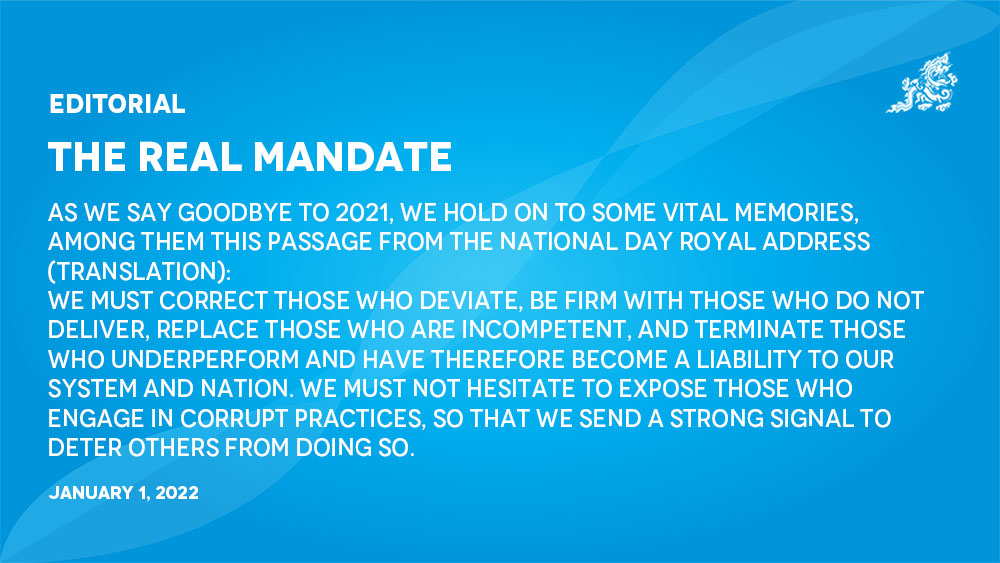As we say goodbye to 2021, we hold on to some vital memories, among them this passage from the National Day Royal address (translation):
We must correct those who deviate, be firm with those who do not deliver, replace those who are incompetent, and terminate those who underperform and have therefore become a liability to our system and nation. We must not hesitate to expose those who engage in corrupt practices, so that we send a strong signal to deter others from doing so.
This was a significant reminder of the important – and neglected – responsibility of the Bhutanese leadership and society: accountability. In the Bhutanese system of governance, the Royal Address has become the most important guide to nation building and entails unquestioning follow-up with thought and action.
It is no surprise that the 2021 Royal address was received with spontaneous and fervent agreement. It has energised the sense of duty in many people. Sadly, it is no surprise that many people also see it as an opportunity that can be manipulated for personal gain. We hear of plans to “fix” someone.
What we should not forget is that a Royal command carries a level of gravity and dignity that cannot be misused under any circumstances. Those who want to expose wrongdoing like corruption did not need a Royal command to do so, since it is the responsibility for all citizens to maintain the integrity of Bhutan and the Bhutanese system.
To link a personal vendetta or motive to a Royal command is a crime in and of itself.
The command for firm action emphasises the need for a clean and efficient government; to refine the systems and processes of governance. The urgency of the tone indicates that the realisation and resolve to achieve this is missing. It is a reminder and support for people to act on mandates that are theirs to fulfill. This particular command comes with the finality that the neglect of duty, be it complacency, incompetence, or corruption, must not be tolerated.
The command calls for a response far beyond the level of finger pointing, complaints, and discussions. After three elections and three governments, political leaders are commanded to rise above personality-based political differences to frame laws and policies in the interest of the nation. Bureaucrats are commanded to shed the culture of malaise and live up to what the country expects from the best educated and qualified section of society. Citizens have the mandate, not only to elect the right leaders, but to keep them accountable.
The Bhutanese media, which broadly includes social media users, have the responsibility to ensure transparency and expose all forms of wrongdoing. The frustrating gap between national vision and implementation is becoming an old story. It is time to uncover the real problems, identify those accountable, and demand action.
The goal is nation building in the interest of the country. If institutions and individuals are penalised in the process, it will be an unfortunate necessity, not the objective.


